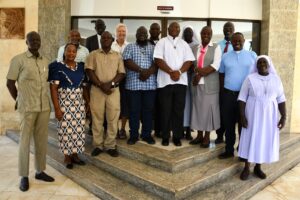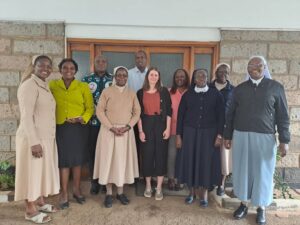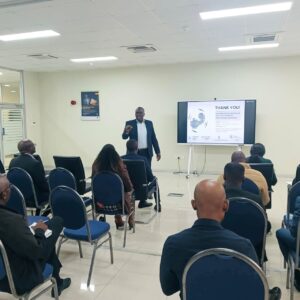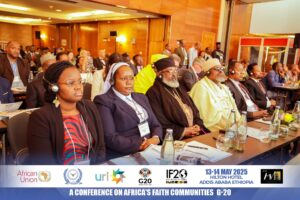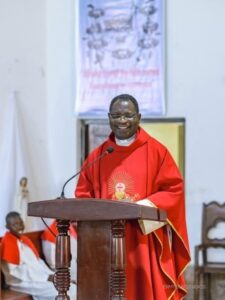AMECEA: Bakanja Seminary Needs More Seminarians Says AMECEA Chairman
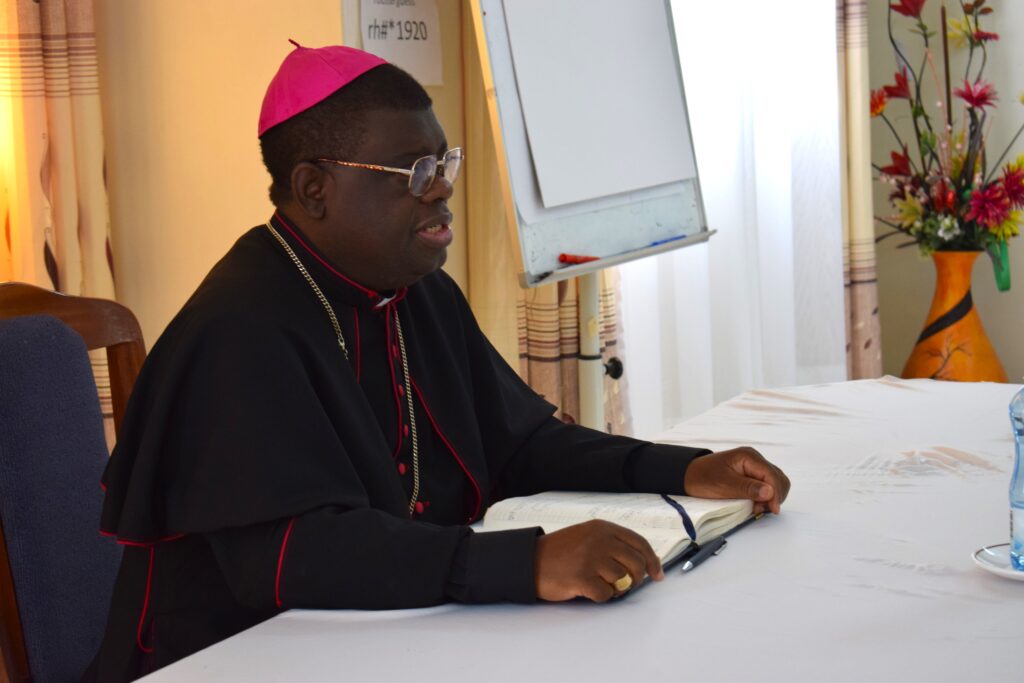
AMECEA Chairman- Rt. Rev. Charles Kasonde
Sr. Jecinter Antoinette Okoth, FSSA
The chairman of the Association of Member Episcopal Conferences in Eastern Africa (AMECEA) during the jubilee of Blessed Bakanja AMECEA College (BBAC) which was established 25 years ago and open for the formation of young men discerning to be diocesan priests from the region, expressed the need of having more seminarians for continued growth of the inter-regional seminary.
Speaking Saturday, October 21, Bishop Charles Sampa Kasonde of Solwezi Diocese in Zambia appreciated the progress of the seminary so far narrating that the seminary which enrolled 19 seminarians for scholasticate at its humble beginning, has today 46 seminarians from across the region and beyond but there is still need to have more.
“God has enabled us to reach this far. As AMECEA I would like to be cognizant of the fact that this institution survives to a greater extent because of the responsibility of the Ordinaries,” Bishop Kasonde said while addressing hundreds of congregants who attended the Silver Jubilee celebration and continued, “For Bakanja to run fairly well, we need about 70 students.”
He called upon the seminarians to act as role models to the young men discerning for their vocation saying, “We depend on you seminarians to draw the numbers through your vocation Director. We need to go in the direction of bringing more seminarians to the seminary so that Bakanja continues to provide that rainbow identity of bringing up these young men from the Eastern African countries and beyond.”
He further disclosed that the presence of Bakanja Seminary gives the Catholic University of Eastern Africa (CUEA) a Catholic identity saying, “Without Bakanja, you cannot talk about the Catholic University of Eastern Africa; you only talk about a University without a Catholic identity. Bakanja, having given CUEA the first cycle of Theology students, gives the university that Catholic identity.”
The AMECEA chairman also highlighted that the Catholic University which was also established by the AMECEA bishops like Bakanja Seminary has affiliated with St. Thomas Aquinas Seminary in Nairobi and anticipates affiliating with a number of Universities because of the relationship between CUEA and Urbaniana University which is a pontifical university under the authority of the Congregation for the Evangelization of Peoples, for the provision of the baccalaureate degree if other countries may not be in a position to provide.
Echoing the possibility of affiliating with CUEA, Bishop Victor Hlolo Phalana of South Africa’s Klerksdorp Diocese who also attended the jubilee celebration underscored the possibility of the seminary in South Africa partnering with CUEA.
“CUEA being a pontifical University it is able to give pontifical qualifications and pontifical degrees. Unfortunately, in South Africa, the seminary of St. John Vianney does not give pontifical degrees since we did not comply with Urbaniana 100%,” the Bishop who has priests’ alumni from Bakanja seminary in his diocese said and disclosed, “We can talk with the seminary commission in South Africa and the rector to see how we too can affiliate with CUEA and benefit from receiving pontifical degrees.”
On his part, the alumni representative Fr. Mathew Zaume from Tombura-Yambio Diocese, South Sudan appreciated the AMECEA Bishops for the great idea of having a regional college where young men from various AMECEA countries can be molded to serve the people of God.
“Bakanja is a seminary with a difference and with a special exposure,” Fr. Zaume said and explained the nature of exposure saying, “While at Bakanja and studying at the Catholic University of Eastern Africa, there is some integration with people from all walks of life and not only interaction with fellow seminarians. This gives a balanced formation.”
He urged formators to continue forming priests who will transform lives and save souls assuring the congregation who attended the silver jubilee that “priests from Blessed Bakanja seminary are offering the best services wherever they are serving in different countries.”
